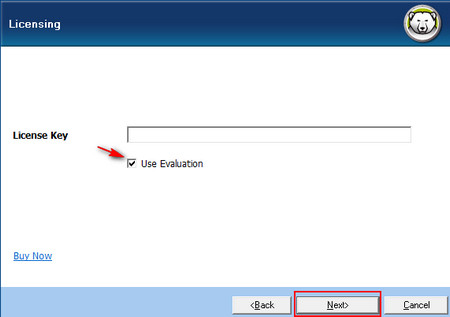Overview
The online lottery industry has seen remarkable expansion over the past two decades, transforming the classic lottery format into a internet-based system that attracts a broad international user base. As IT infrastructure develops, digital lottery platforms have become more accessible, convenient, and diverse, offering players a unique way to engage with games of chance. This study aims to deliver a detailed analysis of the digital lottery ecosystem, including its background, system design, legal frameworks, financial influence, and long-term potential.
Background of Web-Based Lottery
The practice of lotteries can be traced to historical eras, with records of raffle-type draws appearing in multiple civilizations, including the ancient Chinese era and Roman Empire. However, the internet-based lottery as we recognize it today was first developed in the final years of the 1990s. The first online lottery was introduced in 1994 by the Liechtenstein International Lottery, which set the stage for other countries to launch their own systems.
In the beginning of the 21st century, improvements in technology and the global acceptance of the internet led to the expansion of online lottery platforms. As more participants looked for the convenience of buying lottery entries from the ease of their households, many jurisdictions began to license and authorize internet-based platforms, ensuring consumer protection and supporting a safe lottery ecosystem.
Digital Lottery Structure
Online lotteries function on a straightforward system that consists of several major parts:

- Ticket Sales: Players can buy lottery tickets through official websites or apps. Many web portals offer a variety of funding choices, including plastic cards, online wallets, and cryptocurrencies.
- Game Offerings: Web-based lotteries offer a wide array of games, including traditional draw games, instant win tickets, and fast-result draws. Well-known games include Powerball, Mega Jackpot, and European Lottery, which attract millions of players worldwide.
- Draw Process: Digital lottery results are carried out using random number generators (RNGs) or streamed lottery draws, ensuring fairness and justice in the outcome. Players can easily see the results via the website shortly after the draw.
- Prize Distribution: Lottery rewards are transferred to the players' accounts, and they can opt to cash out their earnings or spend in future tickets. Big jackpots may require players to collect their prizes in person, depending on jurisdictional regulations.
Governance in Digital Lotteries
The control of online lotteries changes widely across states and jurisdictions.
- Legal Frameworks: Countries like the United States have a patchwork of local regulations governing online lotteries. The 1961 Wire Act originally banned interstate wagering on sports but has since been revised to allow digital ticketing in certain states. The legislative framework keeps developing, with states such as New Jersey and Paito Warna Angkanet MI rolling out their online lottery platforms.
- Consumer Protection: Government commissions, such as the UK Gambling Commission, ensure that digital lottery companies adhere to clear rules regarding user safety, safe gaming approaches, and equity. Approval processes often require background checks, compliance reports, and adherence to financial crime laws.
- Age Restrictions: Most countries require minimum age limits on online lottery play, usually demanding players to be at least 18+. Internet portals often use identity checks to ensure compliance.
Lottery and the Economy
The digital lottery sector has positively influenced local and national economies.
- Revenue Generation: Digital lotteries produce substantial revenue for governments and nonprofits. A portion of the earnings from entries is often directed to public services, academic funding, and development plans. For instance, in the UK, the National Lottery has raised billions for nonprofit efforts since its inception.
- Job Creation: The rise of internet-based lotteries has created the emergence of numerous jobs in software development, support, marketing, and regulatory compliance. This has added to financial development in various sectors.
- Consumer Spending: Digital lottery platforms stimulate player investments, with consumers increasingly ready to spend lottery tickets. This flow of money benefits not only the ticketing market but also ancillary businesses, such as fintech services and IT vendors.
Challenges and Concerns
Despite its rise, the web-based lottery market encounters several difficulties and concerns:
- Problem Gambling: The convenience of web-based lottery play can lead to increased addictive behaviors. Lottery companies are expected to encouraging responsible gambling practices and delivering tools for those who may become problem gamblers.
- Fraud and Scams: The digital environment of digital lottery services makes them open to illegal schemes. Fake platforms may seek to exploit players through phony lottery sites or scam campaigns. Regulatory bodies must remain vigilant to safeguard players.
- Market Saturation: As more regions approve digital lottery play, there is a risk of excess competition, causing increased market pressure. This could result in lower revenue for governments and nonprofits funded through lottery revenue.
The Road Ahead
The coming years of online lotteries looks bright, with several directions expected to influence the sector:
- Technological Advancements: Innovations in technology, such as blockchain and artificial intelligence, may enhance transparency and protection in web-based gambling. Blockchain could deliver permanent ledgers of transactions, while AI could strengthen fraud detection.
- Increased Global Participation: As more nations legalize digital lottery play, the potential for cross-border participation increases. This could lead to massive pools and more players, helping both platform providers and participants.
- Mobile Gaming: The expansion of app-based gaming presents a huge opportunity for mobile lottery platforms. With the growing use of mobile devices, gaming companies are likely to spend more in apps to serve a modern user base.
- Integration of Cryptocurrency: The increasing adoption of virtual money could transform web-based payments. Gaming platforms may start supporting blockchain tokens, providing players more options for purchasing tickets.
Conclusion
The digital lottery sector has reshaped the way people participate in lottery draws, delivering practicality, entertainment, and the opportunity for big winnings. While issues persist, the market benefits and legal advancements indicate a positive outlook. As technology continues to advance and consumer preferences evolve, the digital lottery market will likely transform, providing new possibilities for both players and operators alike.
